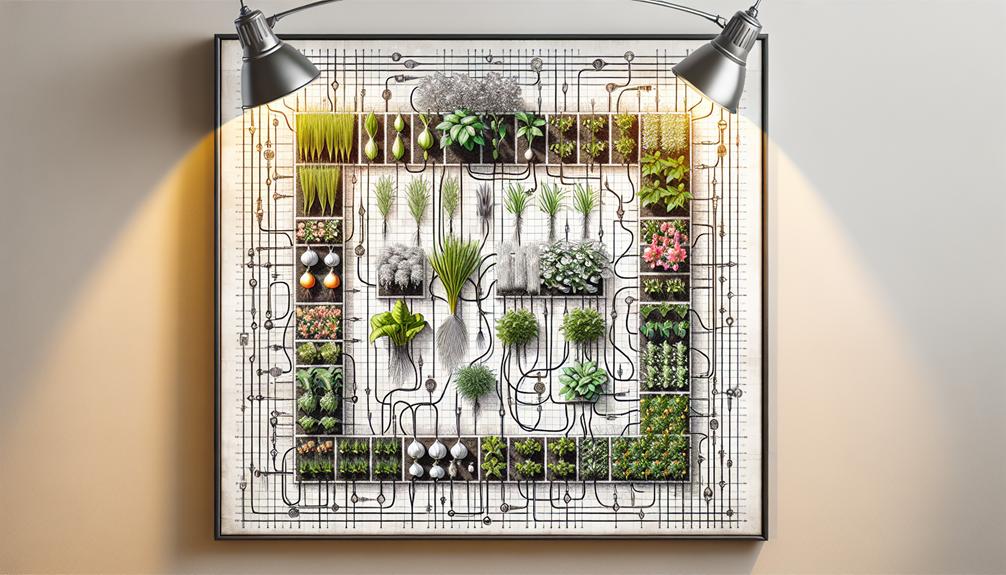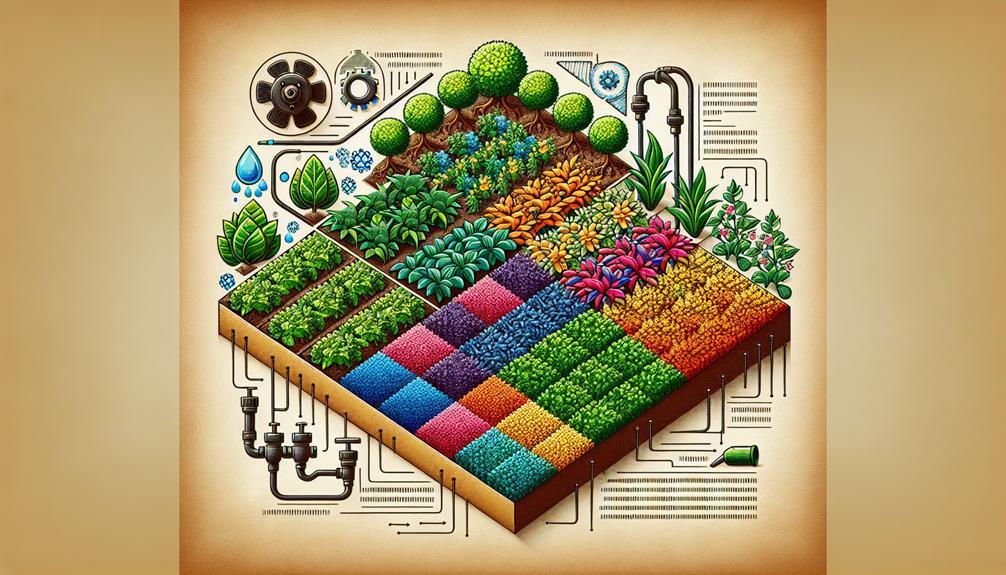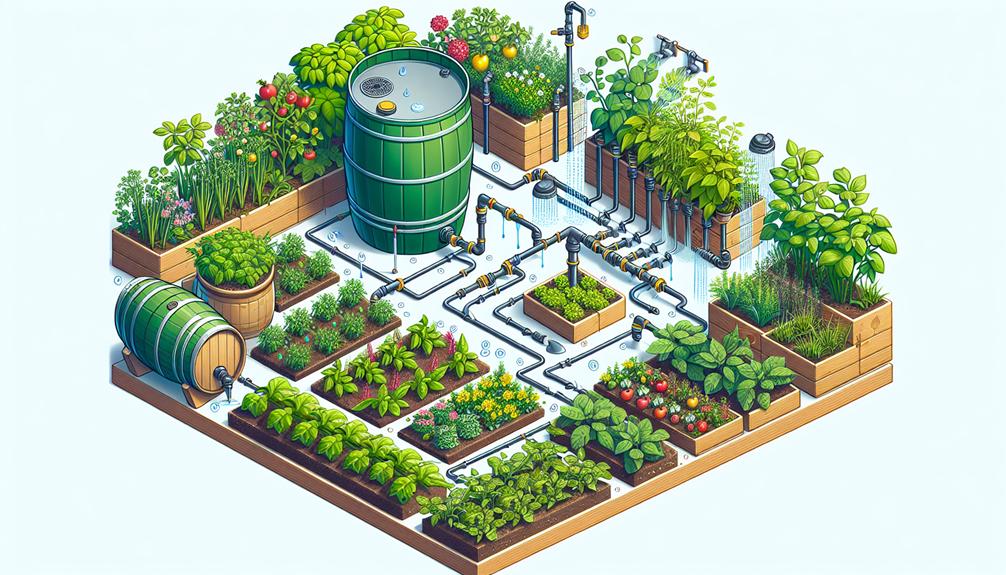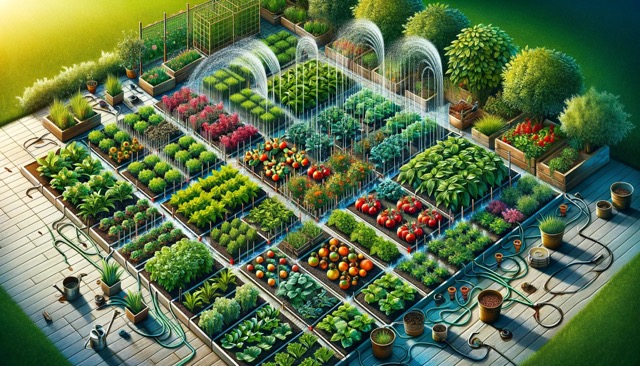Savvy square foot gardeners are always seeking smarter ways to sustain their soil’s moisture without wasting water.
Among the many methods, three techniques stand out: implementing drip irrigation, using mulching, and collecting and using rainwater.
These approaches, when applied correctly, can transform your square foot garden into a model of water efficiency. Let’s see how.
Implement Drip Irrigation

To optimize water usage in your square foot garden, consider implementing a drip irrigation system. This system delivers water directly to the base of each plant, reducing waste and enhancing plant health. Unlike traditional watering methods that can lead to over or under-watering, drip irrigation provides a controlled, steady supply of water tailored to the needs of each plant. This method not only conserves water but also ensures that your plants receive the precise amount of moisture they require for optimal growth.
Incorporating irrigation timers and water sensors into your drip system elevates its efficiency and effectiveness. Irrigation timers automate the watering schedule, ensuring that your garden is watered at the most effective times of day, typically during the early morning or late evening to minimize evaporation. Water sensors, on the other hand, monitor soil moisture levels and adjust watering accordingly, preventing water waste and safeguarding your plants from the stress of over or under-watering.
Use Mulching Effectively

While integrating advanced irrigation systems significantly conserves water, complementing this approach with effective mulching practices can further enhance your square foot garden’s moisture retention and overall health. Understanding the science behind mulching reveals its dual capacity to reduce evaporation rates and combat weed proliferation, both crucial for conserving water and promoting plant vitality.
Selecting the right mulch types is paramount. Organic options, such as straw, bark, or compost, not only retain moisture but also gradually enrich the soil as they decompose. Conversely, inorganic mulches like stones or landscape fabric offer longevity and minimal maintenance, yet they don’t improve soil fertility. Your choice should align with your garden’s specific needs and your long-term sustainability goals.
Incorporating mulch around your plants achieves more than just moisture conservation. It plays a significant role in weed control by creating a barrier that suppresses weed germination and growth, thus reducing the need for frequent watering and cultivation. This not only saves water but also spares you the labor-intensive task of weeding, making your gardening efforts more efficient and eco-friendly.
Collect and Utilize Rainwater

Harnessing the power of rainwater, an often overlooked resource, can significantly reduce your square foot garden’s dependence on municipal water systems and lower your watering costs. By installing water barrels connected to your roof’s downspouts, you’re tapping into an efficient method of collecting rainwater. This practice, known as roof collection, utilizes the large surface area of your home’s roof to gather substantial amounts of water even during short or light rainfall events.
To maximize collection, ensure your gutters are clean and debris-free, allowing for unobstructed water flow into your barrels. Opt for barrels with secure lids to prevent evaporation and deter mosquitoes from breeding. Furthermore, incorporating a first flush diverter will enhance the quality of the collected water by diverting the initial runoff, which may contain roof residues, away from your storage barrels.
Once collected, this rainwater can be used to irrigate your square foot garden, providing a soft, untreated alternative to tap water. The benefits extend beyond savings and sustainability; rainwater’s lower chlorine levels and balanced pH can improve plant health and soil conditions, promoting a more vibrant and productive garden.

